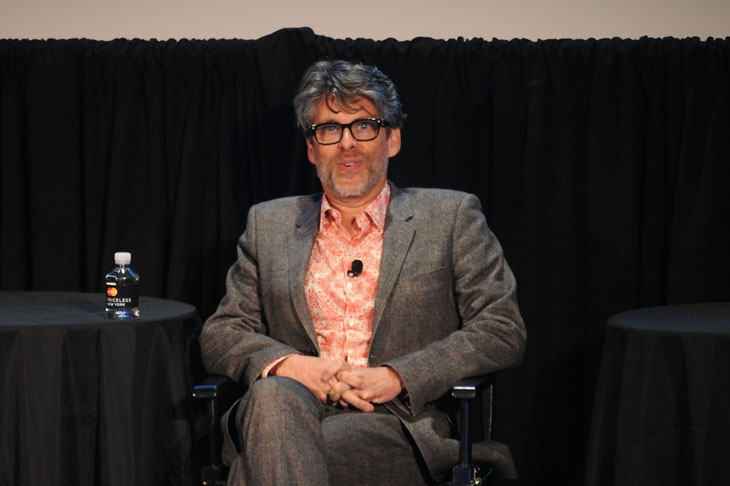Michael Chabon’s back. He’d never gone away, of course — more than a dozen books in all — but it’s been a long time since The Amazing Adventures of Kavalier & Clay (2000), a book entirely true to its title, so amazing and adventurous, indeed, so full of pizzazz, that it seems to have taken the poor chap the best part of two decades to recover from it. Moonglow is a return to form.
Nonetheless, some readers will doubtless find it easy to resist the book’s obvious charms. Chabon has described it in interviews as a ‘faux-memoir novel’. In his acknowledgements he calls it a ‘pack of lies’. And in an prefatory ‘author’s note’ he claims that
In preparing this memoir, I have stuck to facts except when facts refused to conform with memory, narrative purpose, or the truth as I prefer to understand it. Wherever liberties have been taken with names, dates, places, events and conversations, or with the identities, motivations and interrelationships of family members and historical passages, the reader is assured that they have been taken with due abandon.
If you have recently read and enjoyed the voguish autobiographical/fictional experiments of, say, Ben Lerner’s 10:04, Karl Ove Knausgaard’s seemingly
never-ending multi-volume My Struggle and Sheila Heti’s How Should a Person Be? you will probably enjoy the tricks and tricksiness of Moonglow. If you haven’t, or you didn’t, then you won’t.
The narrator of the book is a novelist called Michael Chabon. He visits his dying grandfather, unnamed, who recounts his extraordinary life story, including his experiences as a soldier in the second world war, his relationship with his troubled French wife, who was a Holocaust survivor, his interest in space travel and rockets, and — perhaps most entertaining of all — his disreputable old age in a retirement home in Florida. The narrator listens and offers remarks and elaborations of his own which draw out the meaning and import of his grandfather’s tales. It’s Tuesdays with Morrie — with added flights of fancy.
Chabon has an enviable knack for comedy skit-style scenes and wacky cartoonish description. There’s an awful lot of theatrical business and monkeying around. The grandfather ends up in prison, for example, for almost — hilariously! — choking a man to death with a telephone cord. The grandmother has visions. There’s a snake hunt. A Nazi hunt. It’s wisecracking pratfall prose, with a corresponding tendency towards the homiletic and sentimental. The grandfather, in a not untypical aside, remarks of a Sputnik, as it falls to earth:
Its orbit would degrade. It would spiral inward until it hit the air and then burn up and break apart and leave nothing but vapor and a memory.
But beneath all the high jinks and high concept are a number of very simple and very moving stories: the romance between the grandparents; the fond relationship between the narrator and his grandfather; family relationships. The novel takes its title from the 1930s jazz standard by William Hudson and Irving Mills: it’s a song about love.






Comments